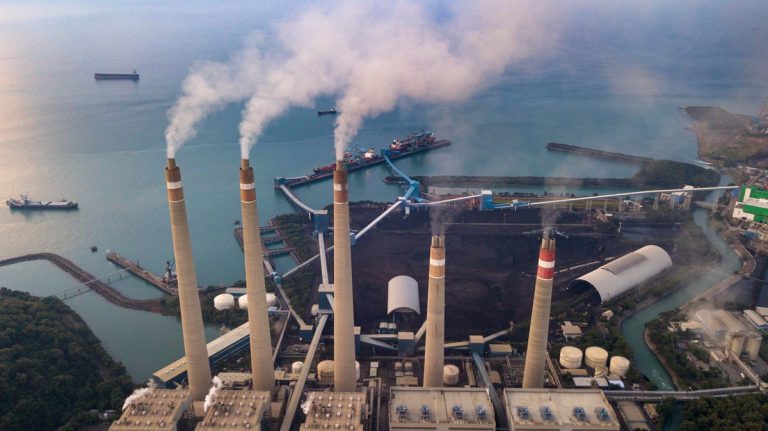Jakarta — Civil society groups united under the Just Coalition for Our Planet (JustCOP) are urging the Indonesian government to reaffirm its commitment to cutting carbon emissions, warning that the country risks missing its peak emission targets by several years.
According to JustCOP, Indonesia’s carbon emissions—particularly from the energy sector—are now projected to peak in 2037, seven years later than the government’s original goal of 2030. “If Indonesia’s Enhanced Nationally Determined Contribution (ENDC) target set in 2022 is met, Indonesia will still produce significant emissions,” said Syaharani, Head of Climate and Decarbonization at the Indonesian Center for Environmental Law (ICEL), during an online discussion on Tuesday, October 14.
Under the current ENDC, Indonesia’s emissions in 2030 are still expected to be 148% higher than 2010 levels. She cited the National Electricity Plan (RUKN 2024–2060), which anticipates a surge in coal-based electricity production until 2037, and the National Energy Policy (KEN), which projects that 79% of Indonesia’s energy mix will still come from fossil fuels by 2030.
Syaharani said that the energy sector will remain the biggest emitter, making it nearly impossible to stay within the 1.5°C global warming limit, adding that the ENDC lacks clear provisions for the early retirement of coal-fired power plants.
Missed deadline for new climate commitment
With the COP30 climate summit approaching in November, Indonesia has yet to submit its Second Nationally Determined Contribution (SNDC), despite the September 2025 deadline. Tri Purnajaya, Director of Economic and Environmental Development at the Ministry of Foreign Affairs, said the government remains optimistic that the submission will be completed soon. However, he urged realism given Indonesia’s economic growth target of 8%.
Torry Kuswardono, Executive Director of Yayasan Pikul and coordinator of the People’s Alliance for Climate Justice, stressed that climate policies must protect communities rather than marginalise them. He highlighted the need for recognition of indigenous land rights, agrarian reform, and adaptive social protection for vulnerable groups such as persons with disabilities, informal workers, and farmers.
“In the last decade, communities at the grassroots have become weaker in facing climate change,” he said, citing examples of nickel downstreaming projects in Maluku Utara and Central Sulawesi that have sparked land conflicts and pollution.
Torry also criticised the government’s limited transparency and tokenistic public participation in policymaking. “Often, public consultations are announced today, and tomorrow the decision is already made,” he said.
He called for more inclusive and small-scale climate mitigation and adaptation projects led by local communities. “Local people know what they need better than anyone else,” he said. “Protecting forests for their biodiversity should take precedence over clearing land for food estate projects.” (nsh)
Banner photo: Coal-fired power plant in Suralaya, Cilegon, Banten, Indonesia (Source: Greenpeace)















